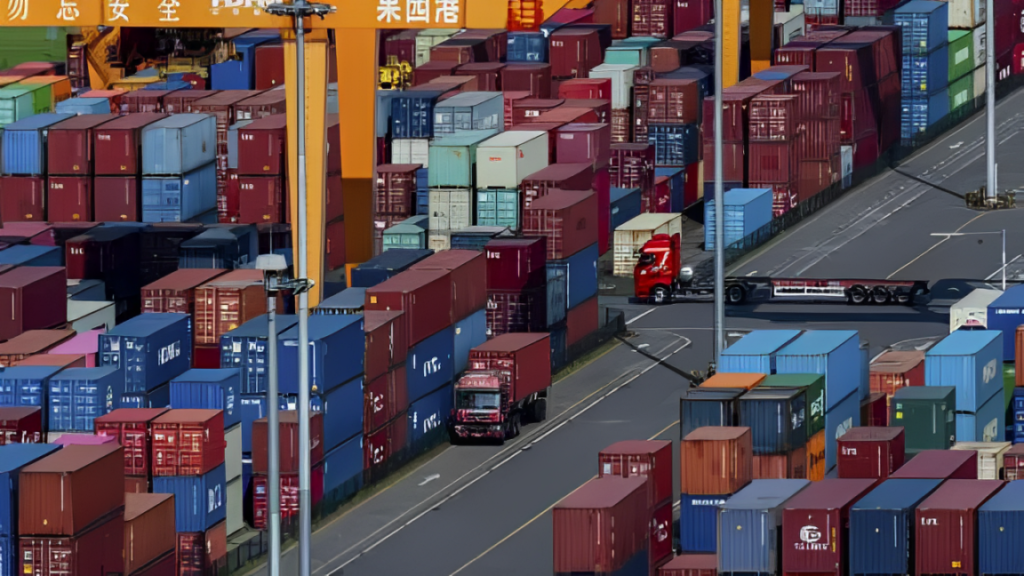Many Americans might not have realized the impact of President Donald Trump’s sweeping tariffs until now. A significant change took place recently, marking the expiration of a major shipping loophole, which has already begun to send ripples through the shopping experience of millions.
This loophole, known as the de minimis exemption, used to allow goods worth up to $800 to enter the United States without being subject to duties or taxes.
Items that were covered under this exemption often bypassed the complex and time-consuming inspection and paperwork processes.
It made shopping from ultra-low-cost Chinese e-commerce sites like Shein, Temu, and AliExpress more accessible for millions of Americans. Customers could order everything from clothes to electronics, without facing the additional cost of tariffs.
However, as of Friday, that loophole has closed. Starting at midnight, shipments from China will be subjected to higher tariffs, depending on the carrier. Some shipments will face an additional 145% tariff, doubling the cost of many popular low-cost items that Americans have grown accustomed to.
The de minimis exemption’s end has already caused waves on social media, with many shoppers scrambling to figure out how the changes will impact their wallets.
Major shipping carriers like UPS, FedEx, and DHL have prepared for the upcoming changes. The government has also confirmed its readiness, with US Customs and Border Protection ensuring that package screenings will be more thorough.
However, many American consumers, particularly those who rely on affordable goods from international sellers, may not be prepared for the cost increases.
The initial closing of the de minimis exemption earlier this year triggered confusion and delays in shipping. During that time, some packages from China saw longer delivery times, with customers reporting limited tracking information.
The issue was largely caused by the overwhelming volume of packages that entered the country under this exemption. According to a congressional research report, over 80% of US e-commerce shipments in 2022 were de minimis imports, with a majority originating from China.
Customs officials reported that nearly 4 million de minimis shipments were processed daily, and in the past fiscal year, 1.36 billion packages came through this exemption.
These included everything from accessories and beauty products to furniture and even holiday decorations.
For many shoppers, particularly those on tight budgets, this change will hit hard. Some, like Rena Scott, a retired nurse from Virginia, have relied on these affordable international e-commerce sites to fill the gap left by rising domestic prices. “I can’t afford to buy from Temu now, and I already couldn’t afford to buy in this country,” Scott shared with CNN.
Lower-income households are expected to feel the brunt of this change. Research has shown that nearly half of the de minimis packages were delivered to the poorest zip codes in the United States.
In contrast, only 22% went to wealthier neighborhoods. As a result, the price hikes will likely worsen the financial strain on already struggling families.

Ahead of the loophole’s closure, retailers like Shein and Temu raised their prices. Shein explained that the rise in operating costs due to new tariffs meant an unavoidable price adjustment.
Despite these efforts to maintain low prices, the platform acknowledged that customers will notice the changes. Temu, on the other hand, has begun to transition toward local fulfillment, where U.S.-based sellers will handle orders, although it remains uncertain if further price hikes will follow.
The impact is not just felt by shoppers; shipping carriers are also bracing for higher operational costs. DHL has already increased staffing levels to handle the expected surge in customs clearances.
The new tariffs on Chinese and Hong Kong goods shipped via major carriers like UPS and FedEx will reach a baseline of 145%, and USPS will apply a baseline 120% tariff or a flat $100 fee per item. Starting June 1, the flat fee will rise to $200.
The end of the de minimis exemption has sparked mixed reactions among Americans. While some, particularly supporters of Trump’s policies, see it as a necessary step to curb what they view as unfair trade practices, others are less optimistic.
A recent CNN poll found that 59% of Americans believe that Trump’s policies have worsened economic conditions in the country. Many are concerned that the new tariffs will further elevate the cost of living, with 6 out of 10 respondents saying that the president’s trade policies have led to higher living expenses.
For President Trump, the end of the de minimis exemption was a decision to close a “big scam.” While he insists the move was crucial to address trade imbalances, the real-world effects on American shoppers are undeniable. The next few months will reveal just how far-reaching the changes will be for consumers and businesses alike.
As the tariff situation unfolds, one thing remains clear: American shoppers will need to adjust to a new era of online shopping, with higher prices and more scrutiny at customs.
How this will affect the US economy and daily life remains to be seen, but for now, it’s a big deal for millions of consumers who are used to the convenience and affordability of international e-commerce.
Disclaimer- Our team has thoroughly fact-checked this article to ensure its accuracy and maintain its credibility. We are committed to providing honest and reliable content for our readers.






